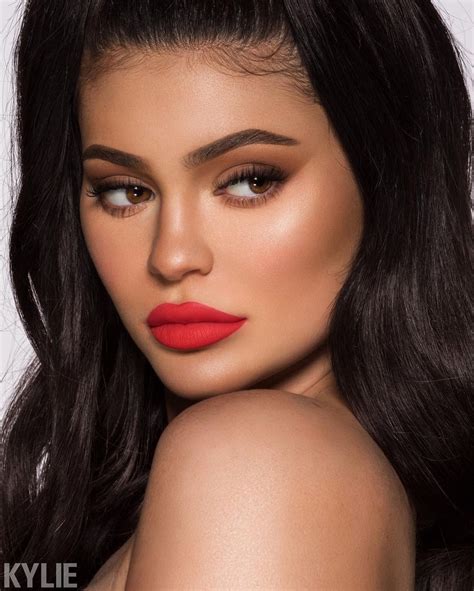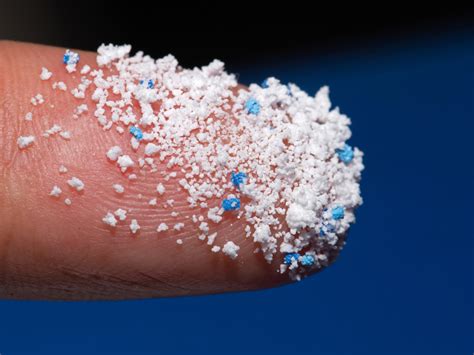
Kylie Jenner reportedly feels “vindicated” after Forbes revoked Selena Gomez’s billionaire status, according to a source speaking to the Daily Mail. The source suggests Jenner believes the situation highlights the scrutiny she has faced regarding her own billionaire status, which Forbes retracted in 2020, accusing her of inflating the value of her cosmetics company, Kylie Cosmetics.
Kylie Jenner Reportedly Feels “Vindicated” After Selena Gomez’s Billionaire Status Revoked
The recent retraction of Selena Gomez’s billionaire status by Forbes has reportedly sparked a sense of vindication for Kylie Jenner, who faced similar scrutiny and a revoked billionaire title in 2020. A source close to Jenner, speaking to the Daily Mail, suggests that the reality star and businesswoman feels the situation underscores the intense public and media examination she underwent when Forbes questioned the valuation of her cosmetics company, Kylie Cosmetics.
In 2020, Forbes famously declared that Jenner was no longer a billionaire, alleging that her family had inflated the company’s financial figures and misled the publication. This decision triggered a significant backlash and ignited a public debate about wealth, celebrity, and the metrics used to determine financial status. Jenner vehemently denied the allegations at the time, asserting the accuracy of her financial information.
The source quoted by the Daily Mail stated, “Kylie feels vindicated. She knows what it is like to have your business dealings put out for the world to judge. She feels that this is finally proof that things are not always what they seem, and that what happened to her was not fair.” This sentiment reflects a sense of validation that Jenner reportedly experiences in light of Gomez’s recent experience.
While the details surrounding Gomez’s situation differ, the revocation of her billionaire status has brought renewed attention to the complexities of accurately assessing the wealth of high-profile figures and the potential for misrepresentation or fluctuating valuations. The source implied that Jenner believes the scrutiny directed at Gomez is indicative of the broader challenges in evaluating celebrity wealth, suggesting that Jenner’s earlier experience wasn’t an isolated incident, but part of a larger trend of questioning and reassessing the financial empires of public figures.
Kylie Jenner’s Billionaire Controversy: A Recap
In March 2019, Forbes declared Kylie Jenner the world’s youngest self-made billionaire, largely based on the success of Kylie Cosmetics, which she founded in 2015. The company’s rapid growth and high-profile collaborations, particularly its exclusive distribution deal with Ulta Beauty, fueled the perception of its exceptional value.
However, in May 2020, Forbes published a follow-up article titled “Inside Kylie Jenner’s Web of Lies—And Why She’s No Longer a Billionaire.” This article accused Jenner and her family of providing misleading information about Kylie Cosmetics’ revenue and profitability. Forbes claimed that the company was significantly smaller and less profitable than previously reported, leading to the conclusion that Jenner’s net worth was far below the billion-dollar mark.
The accusations centered on discrepancies between the financial information presented to Forbes and subsequent disclosures following Coty Inc.’s acquisition of a 51% stake in Kylie Cosmetics for $600 million in November 2019. Forbes argued that the Coty deal revealed a much smaller and less profitable business than the Jenners had allegedly led them to believe.
The article also raised questions about the accuracy of tax returns and other financial documents provided to Forbes. The publication asserted that the Jenners had inflated the company’s revenue figures and exaggerated the extent of its success. Forbes’ chief content officer, Randall Lane, stood by the report, stating that their investigation revealed “a web of lies” and that Jenner was not, in fact, a billionaire.
Kylie Jenner vehemently denied Forbes’ accusations, taking to Twitter to defend her business and her financial status. She stated, “What am i even waking up to. i thought this was a reputable site… all i see are a number of inaccurate statements and unproven assumptions lol. i’ve never asked for any title or tried to lie my way there EVER. period.” She further added, “‘even creating tax returns that were likely forged’ that’s your proof? so you just THOUGHT they were forged? like actually what am i reading.”
The controversy surrounding Jenner’s billionaire status sparked a wider debate about the definition of “self-made” and the role of family wealth and connections in achieving financial success. Critics argued that Jenner’s privileged upbringing and access to resources through her famous family made the “self-made” label misleading, despite her undeniable entrepreneurial efforts.
The incident also highlighted the complexities of valuing private companies and the potential for subjective interpretations of financial data. The value of a brand, especially in the cosmetics industry, can be highly dependent on marketing, social media influence, and consumer perception, making it challenging to objectively quantify its worth.
Selena Gomez’s Billionaire Status Revocation: The Context
While the exact details of why Forbes reportedly revoked Selena Gomez’s billionaire status remain somewhat unclear, it’s essential to understand the broader context of how Forbes assesses and reports on individual wealth. Forbes’ methodology typically involves evaluating a person’s assets, including company ownership, real estate holdings, investments, and other valuable possessions.
The value of these assets is then estimated based on market data, financial reports, and other publicly available information. For private companies, such as Kylie Cosmetics or Selena Gomez’s Rare Beauty (if she indeed had reached a billionaire status through it), Forbes often relies on industry comparables and expert analysis to determine their worth.
However, these valuations are inherently subject to change, as market conditions, consumer trends, and company performance can all impact the perceived value of an asset. In Gomez’s case, it’s plausible that Forbes initially estimated her net worth based on factors such as the success of Rare Beauty, her music career, and other ventures. Subsequent changes in these factors or a reassessment of their value could have led to the decision to retract the billionaire status.
It’s important to note that Forbes’ billionaire list is not a definitive or exhaustive record of wealth. It’s an estimation based on the best available information at a specific point in time. Fluctuations in the market, changes in company valuations, and new information about an individual’s assets can all lead to revisions in their reported net worth.
Furthermore, the concept of “billionaire status” can be somewhat arbitrary. An individual’s net worth may fluctuate around the billion-dollar mark, depending on market conditions and other factors. A slight dip in the value of their assets could temporarily push them below the threshold, while a subsequent increase could restore their billionaire status.
The Gomez situation highlights the challenges of accurately tracking and reporting on the wealth of high-profile individuals, particularly those with diverse income streams and complex financial holdings. It also underscores the potential for public perception to be influenced by these reports, even when they are based on estimates and subject to change.
The Impact on Public Perception and Brand Image
Both Jenner and Gomez have experienced the potential impact of Forbes’ billionaire list on their public image and brand perception. Being declared a billionaire can enhance an individual’s reputation as a successful entrepreneur and business leader, attracting investors, partners, and customers.
However, the revocation of billionaire status can also have negative consequences, leading to accusations of dishonesty, mismanagement, or overvaluation. In Jenner’s case, the Forbes controversy sparked a wave of criticism and scrutiny, tarnishing her reputation and prompting accusations of misleading consumers and investors.
Similarly, Gomez’s reported experience could potentially affect her brand image, although the details surrounding the situation are less clear. While losing billionaire status may not be as damaging as being accused of dishonesty, it could still raise questions about the financial performance of her businesses and her overall financial acumen.
The public’s perception of wealth and success is often shaped by these types of reports, and fluctuations in an individual’s reported net worth can influence their standing in the eyes of consumers and the media. The Forbes list, in particular, carries significant weight and can have a lasting impact on an individual’s reputation and brand image.
The Broader Implications for Celebrity Wealth and Business
The controversies surrounding Jenner and Gomez’s billionaire status raise broader questions about the nature of celebrity wealth and the complexities of building and maintaining successful businesses in the public eye. Celebrities often have diverse income streams, including endorsements, acting roles, music sales, and entrepreneurial ventures.
Valuing these diverse assets can be challenging, as their worth is often tied to their personal brand and public image. A celebrity’s reputation, popularity, and social media influence can all impact the value of their businesses and endorsements.
Furthermore, the cosmetics industry, in particular, is known for its volatility and dependence on trends and consumer preferences. The success of a cosmetics brand can be heavily influenced by marketing, social media engagement, and celebrity endorsements. Changes in these factors can significantly impact a company’s revenue and profitability, making it difficult to predict its long-term value.
The Jenner and Gomez situations also highlight the importance of transparency and accurate financial reporting in building and maintaining trust with consumers and investors. Misleading or inaccurate information can damage a company’s reputation and erode its value.
Ultimately, the controversies surrounding celebrity wealth and business serve as a reminder of the complexities of building and maintaining financial success in the public eye. They also underscore the importance of transparency, accurate reporting, and a clear understanding of the factors that drive value in diverse industries.
The Daily Mail’s source suggests that Kylie Jenner believes the situation surrounding Selena Gomez validates her previous experience, highlighting the intense scrutiny faced by public figures regarding their wealth and business ventures. Whether this reported sentiment truly reflects Jenner’s feelings remains unconfirmed, but the situation has undoubtedly reignited discussions about celebrity wealth, brand valuation, and the pressures of maintaining a public image of financial success. Frequently Asked Questions (FAQ)
1. Why did Forbes initially declare Kylie Jenner a billionaire?
In March 2019, Forbes declared Kylie Jenner the world’s youngest self-made billionaire based on the success of Kylie Cosmetics, which she founded in 2015. The company’s rapid growth, high-profile collaborations, and exclusive distribution deal with Ulta Beauty contributed to the perception of its exceptional value. Forbes estimated her net worth to be over $1 billion, primarily based on her ownership stake in Kylie Cosmetics.
2. What led to Forbes retracting Kylie Jenner’s billionaire status?
In May 2020, Forbes published an article titled “Inside Kylie Jenner’s Web of Lies—And Why She’s No Longer a Billionaire,” accusing Jenner and her family of providing misleading information about Kylie Cosmetics’ revenue and profitability. Forbes claimed that the company was significantly smaller and less profitable than previously reported, leading to the conclusion that Jenner’s net worth was far below the billion-dollar mark. This reassessment was triggered by financial disclosures following Coty Inc.’s acquisition of a 51% stake in Kylie Cosmetics in November 2019, which Forbes argued revealed a less lucrative business than the Jenners had allegedly portrayed.
3. How did Kylie Jenner respond to Forbes’ accusations?
Kylie Jenner vehemently denied Forbes’ accusations, taking to Twitter to defend her business and her financial status. She stated that she had never asked for any title or tried to lie her way to it. She also questioned the accuracy of Forbes’ sources and the validity of their claims, particularly their assertion that her tax returns were likely forged. Jenner maintained that her financial information was accurate and that Forbes’ assessment was based on inaccurate statements and unproven assumptions.
4. Why did Forbes reportedly revoke Selena Gomez’s billionaire status?
The specific reasons for Forbes reportedly revoking Selena Gomez’s billionaire status are not as clearly detailed as the Kylie Jenner situation. Forbes has not released an official statement clarifying the situation. However, it can be inferred that a reassessment of her assets, including the value of Rare Beauty, her music career, and other ventures, may have led to the conclusion that her net worth no longer meets the threshold for billionaire status. Market fluctuations, changes in consumer trends, or new information about her financial holdings could have influenced this decision. The source article does not provide concrete details, however it suggests that the intense scrutiny is indicative of broader challenges in evaluating celebrity wealth.
5. What is the significance of Kylie Jenner reportedly feeling “vindicated” by Selena Gomez’s experience?
Kylie Jenner reportedly feels “vindicated” because she believes Selena Gomez’s situation highlights the scrutiny and potential for misrepresentation that can occur when assessing the wealth of high-profile figures. A source claims that Jenner knows what it is like to have business dealings put out for the world to judge. After previously facing public criticism and accusations of inflating her company’s value, Jenner reportedly sees Gomez’s experience as evidence that things are not always as they seem, and that the criticism she faced may have been unfair. This sentiment suggests that Jenner believes the challenges of accurately evaluating celebrity wealth are not unique to her and that Gomez’s experience validates her past assertions about the complexities and potential inaccuracies in wealth assessments.
6. What does Forbes typically consider when estimating someone’s net worth?
Forbes typically evaluates a person’s assets, including company ownership (both public and private shares), real estate holdings, investments (stocks, bonds, private equity), cash, art collections, and other valuable possessions. For private companies, Forbes often relies on industry comparables, expert analysis, and financial disclosures (if available) to estimate their worth. They also consider factors such as debt and liabilities, which can reduce an individual’s net worth. Their methodology aims to provide a snapshot of an individual’s financial standing at a specific point in time based on the best available information.
7. How does Forbes calculate the value of private companies like Kylie Cosmetics or Rare Beauty?
Calculating the value of private companies involves several methods, as there isn’t a publicly traded stock price to directly reference. Forbes often uses a combination of approaches, including:
- Revenue Multiples: Comparing the company’s revenue to that of similar publicly traded companies in the same industry and applying a similar multiple to the private company’s revenue.
- Earnings Multiples: Similar to revenue multiples, but based on the company’s earnings (such as EBITDA or net income).
- Discounted Cash Flow (DCF) Analysis: Projecting the company’s future cash flows and discounting them back to their present value, taking into account the risk associated with those cash flows.
- Comparable Transactions: Examining recent transactions of similar companies to determine a valuation based on the prices paid in those deals.
- Asset Valuation: Assessing the value of the company’s assets, such as inventory, equipment, and intellectual property.
Forbes also considers qualitative factors such as brand strength, market share, management team, and competitive landscape when determining a final valuation. Expert opinions from industry analysts and financial professionals are often incorporated into the process. The Coty acquisition of Kylie Cosmetics provided a benchmark, but Forbes later argued that the initial projections based on that deal were inflated.
8. What is the role of “self-made” in the context of Forbes’ billionaire list?
The term “self-made” on Forbes’ billionaire list refers to individuals who have built their wealth through their own efforts, rather than inheriting it. However, the definition of “self-made” is often debated, as even individuals who started with significant advantages, such as access to education, resources, or family connections, can be considered “self-made” if they actively built their businesses and created their own wealth. Forbes assigns a self-made score to individuals on the list, ranging from 1 to 10, with 1 representing inherited wealth and 10 representing completely self-made individuals. The controversy surrounding Kylie Jenner’s initial “self-made billionaire” title highlighted the complexities of defining the term, as her family’s fame and resources undoubtedly played a role in her success, even though she founded and built Kylie Cosmetics.
9. What potential impact does Forbes’ billionaire list have on an individual’s brand image and public perception?
The Forbes billionaire list carries significant weight and can have a substantial impact on an individual’s brand image and public perception. Being declared a billionaire can enhance an individual’s reputation as a successful entrepreneur and business leader, attracting investors, partners, and customers. It can also boost their credibility and influence, making them more sought after for endorsements and speaking engagements. Conversely, the revocation of billionaire status or accusations of misleading financial information can damage an individual’s reputation, leading to criticism, scrutiny, and a loss of trust. Consumers may question the authenticity and value of their products or services, and investors may become wary of their business ventures. The public perception of wealth and success is often shaped by these types of reports, and fluctuations in an individual’s reported net worth can influence their standing in the eyes of consumers and the media.
10. Are wealth assessments by Forbes always accurate and definitive?
No, wealth assessments by Forbes are not always accurate or definitive. They are estimations based on the best available information at a specific point in time and are subject to change as market conditions, company valuations, and new information about an individual’s assets become available. The value of private companies, in particular, can be challenging to determine accurately, as it relies on industry comparables, expert analysis, and financial disclosures, which may not always be complete or reliable. Furthermore, the concept of “billionaire status” can be somewhat arbitrary, as an individual’s net worth may fluctuate around the billion-dollar mark, depending on market conditions and other factors. While Forbes strives to provide accurate and reliable wealth assessments, they are ultimately estimations and should be viewed as such.
11. What are the broader implications of these wealth controversies for the cosmetics industry specifically?
The wealth controversies surrounding figures like Kylie Jenner and, reportedly, Selena Gomez, highlight the dynamic nature of brand valuation in the cosmetics industry. This industry thrives on trends, social media influence, and celebrity endorsements, making brand value inherently volatile. Consumer preferences shift rapidly, and a brand’s perceived worth can surge or plummet based on viral moments, influencer collaborations, or even public relations missteps. Accusations of inflated financial figures, as seen in Jenner’s case, raise concerns about transparency and ethical marketing practices within the industry. Consumers may become more skeptical of brands promoted by celebrities, demanding greater accountability and verifiable information. For the cosmetics industry, these controversies underscore the need for sustainable business models, authentic brand messaging, and robust financial reporting to maintain long-term credibility and consumer trust. They also emphasize the role of responsible celebrity endorsements and the potential risks of associating with brands that face accusations of financial impropriety.
12. How does the public perception of “self-made” individuals impact societal views on wealth and success?
The public perception of “self-made” individuals significantly shapes societal views on wealth and success. The notion of upward mobility and the “American Dream” are often tied to the idea that anyone, regardless of their background, can achieve great wealth and success through hard work and determination. When individuals are perceived as genuinely self-made, their success stories can inspire others and reinforce the belief in meritocracy. However, when the “self-made” label is perceived as misleading or disingenuous, it can fuel cynicism and resentment towards the wealthy elite. Accusations of privilege, inherited wealth, or unfair advantages can undermine the narrative of self-reliance and create a sense of inequality. The debate over who qualifies as “self-made” highlights the complex interplay of factors that contribute to wealth accumulation and raises questions about the fairness of economic systems. Ultimately, the public perception of “self-made” individuals shapes attitudes towards wealth inequality, social mobility, and the role of government in regulating economic opportunities.
13. What are the ethical considerations involved in reporting on celebrity wealth and financial information?
Reporting on celebrity wealth and financial information involves several ethical considerations. Journalists have a responsibility to verify information thoroughly, avoid sensationalism, and protect the privacy of individuals unless there is a clear public interest justification for disclosing their financial details. It is crucial to avoid making unsubstantiated claims or accusations that could damage an individual’s reputation or business. Journalists should also be mindful of the potential for bias or conflicts of interest when reporting on wealth, particularly if they have personal relationships with the individuals or companies involved. Transparency and fairness are essential, and journalists should strive to present a balanced perspective, allowing individuals to respond to any allegations or criticisms. Finally, journalists should consider the potential impact of their reporting on the individuals and communities affected, and avoid contributing to harmful stereotypes or prejudices about wealth and success.









